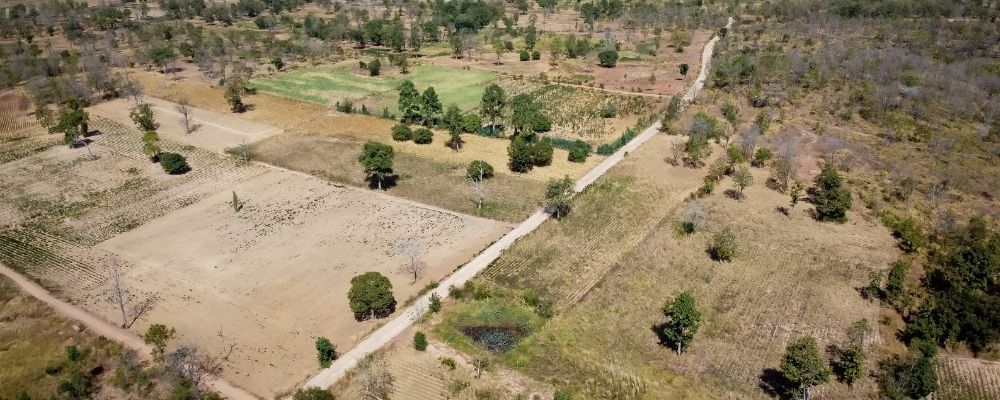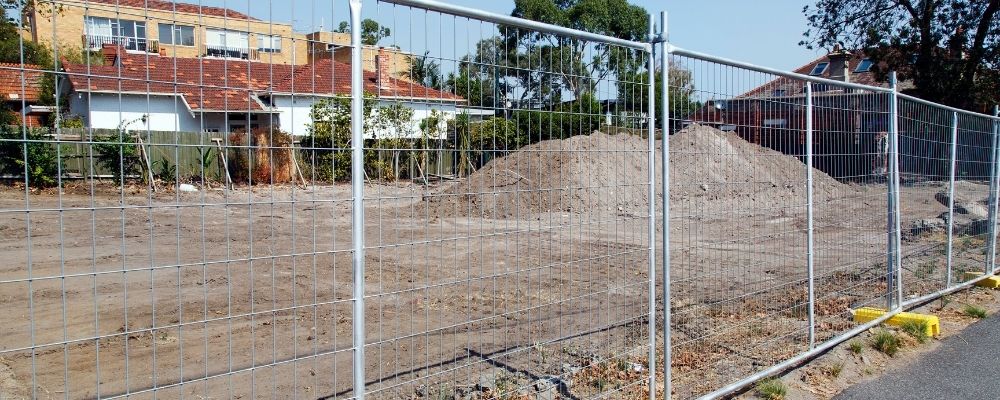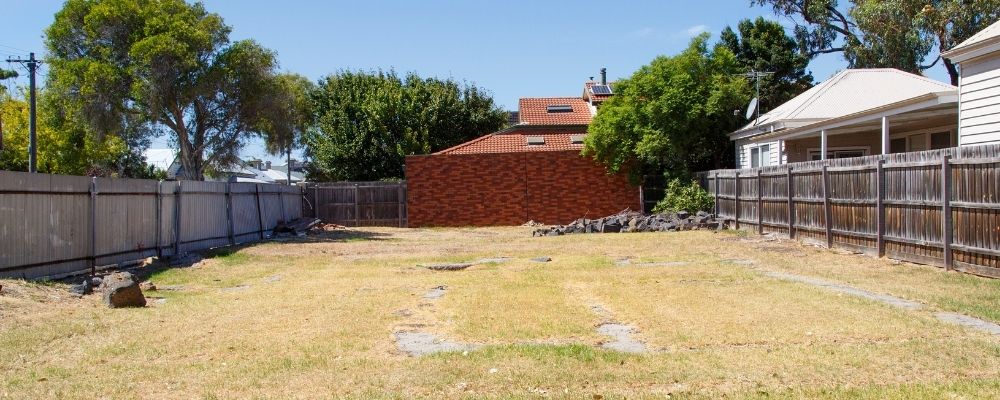While most real estate investors focus on either residential or commercial properties, there is also a third type of investing that often gets neglected – purchasing raw land. Purchasing land can be a smart real estate investment, but it also comes with additional complications. Here is a closer look at how to make a smart investment in raw land.
Table of Contents
Is Buying Land a Good Investment in 2022?
If you’re asking yourself, is buying land a good investment? The answer is yes, but you have to do your due diligence. Land is a finite resource with unlimited demand. It’s not something that can be reproduced or replicated, yet people will always need new places to build homes or commercial buildings. Therefore, if you make a smart land investment, it can appreciate in value over time.
But the key is making a smart investment. While in the abstract, scarcity plus demand will lead to an increase in value, there are other factors that may impact the amount of demand for a particular plot.
For instance, if the land is next to a toxic waste dump, you will have a tough time developing the area, rendering your investment worthless. Or if the land is in a remote location with very little to attract potential homeowners or commercial tenants, you may have to wait several decades or longer to get your money back. So, while buying land in a good location can be a great real estate investment, you must be smart about where you purchase.
What to look for When Buying Land?

There are a few key factors you should be sure to analyze if you are considering buying vacant land.
- Location: Location is probably the most important factor to consider. Since there are no physical structures already present on the land, the location is where it derives most of its value. The best places to buy land are up-and-coming areas that haven’t been fully developed yet. Proximity to local highways, schools, stores, restaurants, and public transportation is a good way to determine if the location is attractive. While purchasing land in a remote location may be a good long-term investment, if you’re looking to turn a profit sooner rather than later, you should stick to areas where there is already a demand for housing or commercial spaces.
- Zoning: Zoning is another important aspect to consider before purchasing land, so you know what kind of buildings are feasible for the location. An area can be zoned for commercial use, residential use, or both. It’s important to check the local laws and zoning requirements so you don’t plan to erect a shopping mall, only to find out commercial buildings are prohibited.
- Hazards: It’s also important to take stock of any potential hazards that may impact your investment. Perhaps the land is in a flood zone or it’s in an area known for wildfires. Or maybe there are chemical hazards left by a previous occupant. Either way, you should take stock of any potential hazards so you can determine whether they can be mitigated or if you should look somewhere else.
- Utilities: Utility sources are an often overlooked, yet crucial element to buying land. You could build a beautiful house on the property, but if you can’t get access to the local sewage system or the electrical grid, you’re going to have problems finding buyers. This is especially important if you’re buying land in a remote location, where it may be more expensive to connect to public utilities.
- Easements: An easement is a right granted to a third party to access or use another person’s property. This could be a neighbor who needs to access a public road on the other side of your property. Or it could be a company or public entity that needs to access the land to service utilities such as power or water lines. Although easements won’t necessarily hurt your investment, it’s still important to know they exist so you can plan any construction projects accordingly.
What Causes Land to Appreciate in Value?
Demand is the primary cause for a raw land investment appreciating in value . If you purchase vacant land when the demand is low and suddenly the area becomes more valuable, you will make a handsome return on your investment. But there are several factors that can impact the demand.
Some factors that may lead to land increasing in value include:
- Local development
- Time
- Policy changes
- Improvements in local infrastructure
- Economic improvements in the area
- Population growth
Your land will increase in value when it becomes more desirable to developers, homeowners, or commercial tenants. This generally happens when more people and businesses move into the area. So, any social or economic factor that may increase the desirability of the area can cause the land to appreciate in value.
What Causes Land to Depreciate in Value?
Although in general, land does not depreciate due to the laws of supply and demand, there are several factors that could impact its commercial viability. This will lead to a temporary depreciation of its value unless the problem can be solved.
Factors that may lead to depreciation in the value of land include:
- Physical degradation (erosion, flooding, wildfires, etc.)
- Market crashes
- Improper usage (pollution, toxic waste, etc.)
- Zoning changes
Raw land is considered to have no definitive life and therefore, according to many accounting principles, it cannot depreciate. However, there are several factors that can impact the commercial viability of the property at a particular moment. If you hold onto the land and address any issues, it will eventually increase in value. But if you are looking to make your money back within a particular time frame, you should pay attention to these factors.
What are the Benefits of Buying Land?

There are numerous benefits to buying land that make it a smart investment. For starters, it’s less expensive than purchasing a property with a structure already built and it offers developers a blank canvas to construct whatever they like. Not to mention, it’s a great long-term investment and you don’t have to pay as many carrying costs, such as a mortgage, utilities, or insurance (plus the property taxes are much cheaper as well).
Another benefit is that you can also choose to develop the land which can lead to an immediate increase in the land value. Alternatively, you hold onto it until a later date. Barring an extreme event such as a natural disaster or economic collapse, it can only increase in value over time.
- Less expensive than property
- You have a blank canvas for development and construction
- Lan can be an excellent long term investment
- Minimal carrying costs
What are the Disadvantages of Buying Land?
Even though land can be a great investment, there are also certain disadvantages as well. Raw land doesn’t have the same passive income potential as an investment property , because there is no structure to rent out. So, if you want to start making money right away, you’ll have to construct a building, which requires more up-front capital. Plus, it’s much more difficult to predict the potential value of the land without some kind of structure.
When you purchase an investment property, you can run comps of other similar properties in the neighborhood. But with land, it’s mostly based on speculation. This isn’t necessarily a bad thing, but it is a more complex process than purchasing a home or commercial space that is already built.
- You can't earn passive income from land
- Converting raw land into a building can be expensive and risky
- Evaluating the value of land is speculative compared to valuing actual properties
- Zoning can have a massive impact on the long term value of a vacant plot
Final Thoughts
Overall, buying land is a great investment, no matter what year it is. But you have to understand that it’s a long-term investment and may not pay off right away. If you are looking for a quick payday or immediate cash flow, you’re better off sticking to traditional investment properties. But if you’re looking for a low-risk investment with tons of earning potential for the future, then buying raw land is the way to go.



